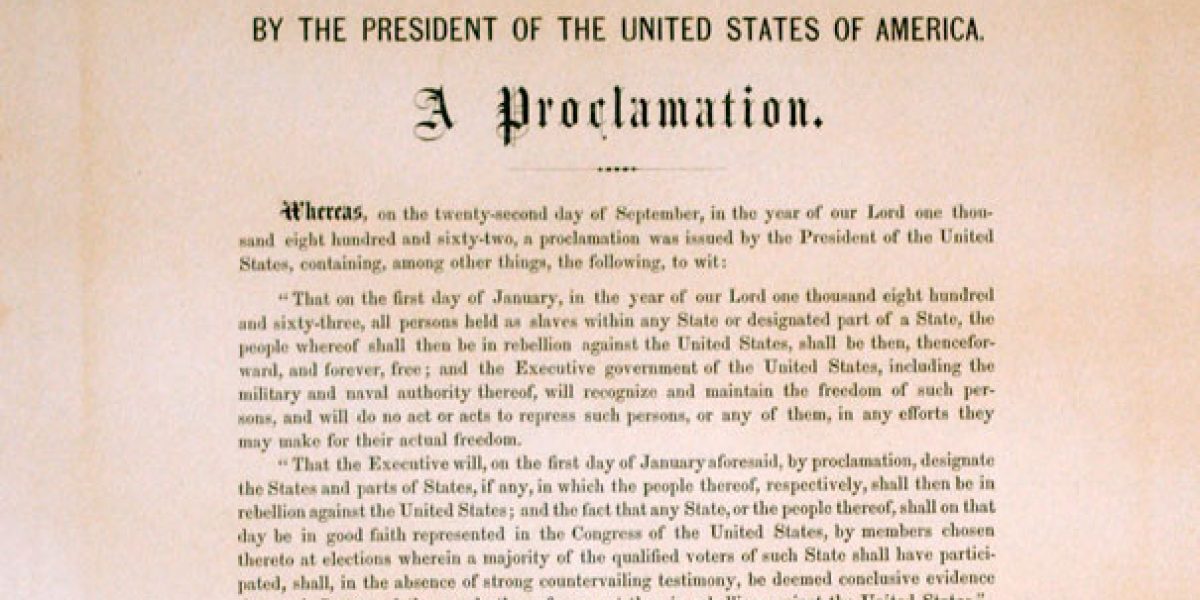A Pivitol Step Toward Freedom
January 1st marks the 161st anniversary of the Emancipation Proclamation. This marked a turning point in the fight against slavery in the United States, and its significance goes far beyond its immediate impact. In this article, we delve into the historical context, the immediate effects, and the enduring legacy of the Emancipation Proclamation.
Historical Context: A Divided Nation
The 19th century was a period of immense turmoil for the United States. The nation was deeply divided over the issue of slavery, with Southern states relying heavily on enslaved labor for their agrarian economy. The institution of slavery clashed with the ideals of liberty and equality upon which the nation was founded. By the early 1860s, tensions escalated into a full-blown Civil War, pitting the Northern states against the Southern states in a battle for the future of the nation.
Issuing the Emancipation Proclamation
As the Civil War raged on, President Lincoln grappled with the moral dilemma of slavery. On January 1, 1863, he issued the Emancipation Proclamation, a groundbreaking executive order that declared all enslaved individuals in Confederate territory to be forever free. While this proclamation did not immediately free all enslaved people, it was a decisive step toward ending the institution of slavery. It signaled a shift in the war’s objective, transforming it from a conflict solely focused on preserving the Union to one that also aimed to eradicate the institution that had divided the nation.
Immediate Effects: Hope and Progress
The Emancipation Proclamation had a profound impact on both enslaved individuals and the course of the Civil War. For enslaved people in Confederate territories, it represented a beacon of hope. It signified that their struggle for freedom was now intertwined with the larger war effort. Many enslaved individuals seized the opportunity to escape to Union lines, where they could join the fight against their oppressors and seek refuge.
Additionally, the Emancipation Proclamation transformed the war into a moral crusade against slavery. It garnered international support for the Union cause and made it more difficult for European powers to support the Confederacy, which relied heavily on foreign aid. The proclamation also paved the way for the recruitment of African-American soldiers into the Union Army, bolstering its ranks with soldiers who were fighting not only for the preservation of the Union but also for their own freedom.
Enduring Legacy: A Stepping Stone to Freedom
While the Emancipation Proclamation did not bring immediate freedom to all enslaved individuals, its significance extended far beyond its immediate effects. It laid the foundation for the eventual abolition of slavery and set the United States on a path toward greater equality. The proclamation’s legacy can be seen in subsequent events and developments:
13th Amendment: The Emancipation Proclamation paved the way for the passage of the 13th Amendment to the U.S. Constitution in 1865, officially abolishing slavery in all U.S. states and territories.
Symbol of Freedom: The Emancipation Proclamation remains a symbol of freedom and the struggle for justice. Its anniversary is celebrated annually as Emancipation Day in various states.
Inspiration for Social Movements: The proclamation’s principles of liberation and equality inspired future generations in the fight against racial discrimination and injustice. The Civil Rights Movement of the 20th century drew strength from its legacy.
National Transformation: The Emancipation Proclamation marked a significant shift in the nation’s identity. It redefined the United States as a land committed to the principles of freedom and equality for all.
Conclusion
The Emancipation Proclamation stands as a testament to the power of executive action to effect profound change. Its issuance during a tumultuous period of American history shifted the course of the Civil War, inspired hope in the hearts of the oppressed, and set the stage for the eventual eradication of slavery. Beyond its immediate impact, the proclamation’s legacy endures as a symbol of the ongoing struggle for justice and equality. As we reflect on the importance of the Emancipation Proclamation, we recognize its role in shaping a more just and inclusive society, reminding us that the pursuit of freedom is a journey that continues to this day.





